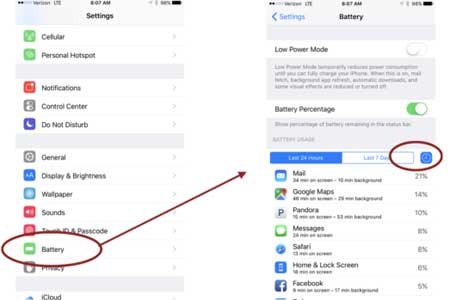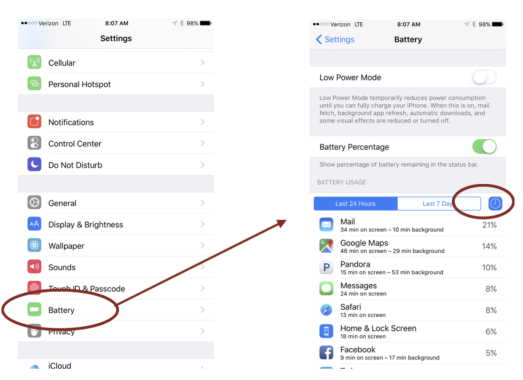Sexting And Cyberbullying in Schools

Tools and ideas to transform education. Sign up below.
You are now subscribed
Your newsletter sign-up was successful
When students have access to mobile devices in school, either in a 1:1 or BYOD environment, much of what happens in their school lives cross over into their personal lives. Here at Eanes ISD, over 80% of our secondary students have smartphones that they bring with them to school on top of the school-issued iPad they are given. While we have some say about the activity on the school device, students’ use of their phones for inappropriate activity is an issue both in and out of school. Last year, I wrote this post about the app YikYak and this one about Secret photo-sharing apps. I wrote these (and accompanying letter to district parents) not to scare adults into taking away kids’ phones, but instead to spark a conversation between child and parent.
Today, I sent home the following letter about sexting and cyberbullying via a couple of different apps that we’ve become privy to here. I share this letter with the rest of the world in the hopes that other schools and communities will also start having this conversation, no matter how uncomfortable it might be.
The following is a letter sent to all parents of secondary school-aged children at Eanes ISD on January 11, 2016:
———————————————————–
Parents of Secondary Students,
Adolescents today have access to knowledge and learning right at their fingertips. They are accessing and creating content on their school-issued iPads and on school computers. More and more of our students also have their own smartphones to access the web and social media. With that access comes greater responsibility and education about the appropriate use of technology and social media. This letter is intended to help raise awareness with families about some trends around the country and possibly among our own students.
Sexting
Tools and ideas to transform education. Sign up below.
There have been several recent instances at high schools around the country of teenagers transmitting illicit images of themselves to other students (also known as “sexting”). Here’s a recent case at a Colorado High School – http://www.cnn.com/2015/11/07/us/colorado-sexting-scandal-canon-city/
In the case of the school in Colorado, many students used a photo vault app like the one we shared last year that looks like a calculator. Students exchange these photos like trading cards, and in some cases, students feel pressured to share inappropriate photos with other students. Once these photos are shared, they can be shared with others and even posted on the web.
Cyberbullying via apps like Brighten and After School
Bullying is not a new occurrence in schools, unfortunately. With technology and social media, there are now new venues for this same bad behavior. Two particular apps that have been brought to our attention as pathways for cyberbullying are the Brighten app and the After School app. Brighten was originally intended as a way for people to send random compliments to each other to “brighten” their day; however, students have used this platform to anonymously bully, make racial slurs, and post other inappropriate comments about other students. Brighten has a way to issue a “time out” if inappropriate behavior is pointed out, but they are not actively monitoring posts. When I reached out to them, they responded with this: “If you are seeing specific instances of bullying, please send people to alec@brighten.in and I can personally take care of it.”
The After School app is promoted as a way to anonymously post messages about your school or those in your school. According to After School data, currently 363 Westlake students are listed as users of this app. When I reached out to them, they responded with the following: “We are very, very sorry about the experience some of your students are having on After School. Our moderators and I are keeping an extra close eye on Eanes Independent School District . We added extra moderators. We are launching an investigation.” They also shared this link: 5 Tips for Parents on Monitoring Their Child’s Social Media Use, which contains some good nuggets of information.
Why are you telling me about this?
We are sharing this news with you to both raise awareness and also to encourage you to have conversations with your child about these apps and sexting. While we can monitor school-issued devices, we can not directly monitor what students are doing on their personal devices. However, if we suspect a student is doing something inappropriate with their personal device, we will confiscate the item and contact parents.
What do I do if my child receives an inappropriate photo or is cyberbullied?
Many students are afraid to turn in other students or afraid that they themselves will get in trouble when it comes to having sexting-like messages on their personal devices. Some students actually feel pressured to take illicit images of themselves as a form of cyberbullying. If a student receives an image and reports it immediately, there will be no punishment as the infraction is being reported. However, if there is intent to possess or promote inappropriate or illicit images, there will be disciplinary action.
What does the law say about this in regards to sexting?
While there are some differences in terms of age (18 years old being the line between minor and adult), the possession or promotion of illicit content of a minor via sexting is similar to being in possession or promotion of child pornography. According to Texas SB 407 – (http://beforeyoutext.com/modules/3.html) A student in “possession” (having illicit content for an unreasonable amount of time) or “promoting” (sending/sharing illicit content with others) can be charged with anything from a Class C misdemeanor to a second degree felony.
What is the district doing to help this?
Our counselors and administration are aware of the situation and ready to help any students that come forward with information around this topic. In addition, we are holding “social media talks” with student groups at the high school as well as discussing digital citizenship and online safety at all levels. For parents, we will continue to host parent talks during booster club meetings and also send out information on our Digital Parent Newsletter (you can sign up here). Starting in the spring, we will hold our 4th “Digital Parenting” course (for more information go to http://eanesisd.net/leap/parents). We have formally requested, as we did with YikYak last year, the app developers put up a ‘geofence’ around our schools. A geofence would block use of the app even on personal phones. However, these companies are not required to comply with this request and even if they do, the geofence is only active around the school, not at home.
What can I do as a parent?
Again, we think it’s important that you have repeated critical conversations with your child about their use of personal technology. Talk to them about the risks of inappropriate use when it comes to sexting and cyberbullying, including breaking the law. Also, most smartphones have ways of checking which apps are being used. For instance, on an iPhone, owned by over 70% of our students, there is a way to check battery usage in settings (with iOS9). Through this check, you can see what apps your child has accessed in the last 24 hours and last 7 days. (see below)

Please report any situations that you are aware of to either the local authorities or school administration. We want to make sure our students know that we are having common conversations between home and school when it comes to sexting and cyberbullying.
Thank you for your support, and please let us know if you have any questions or concerns.
———————————————————-
cross posted at http://hookedoninnovation.com
Carl Hooker is the director of innovation & digital learning at Eanes ISD in Texas. He serves as an advisor to the School CIO member community, a group of top tier IT professionals in schools across the country who understand and benefit from news and information not available elsewhere. Read more at Hooked on Innovation.
Carl Hooker has spent the past 20+ years in education as a teacher and administrator focused on the thoughtful integration of technology and innovation. He consults for multiple districts across the country and is a frequent speaker at state and national events. In his free time he's an author, DJ, podcast host, Poetry Slammer, and Trivia Night MC. He's the co-founder of the social platform K12Leaders.com. Check out his latest book Ready Set FAIL! Now available for order here: https://mrhook.it/fail Read more of his blogs at Hooked on Innovation.
